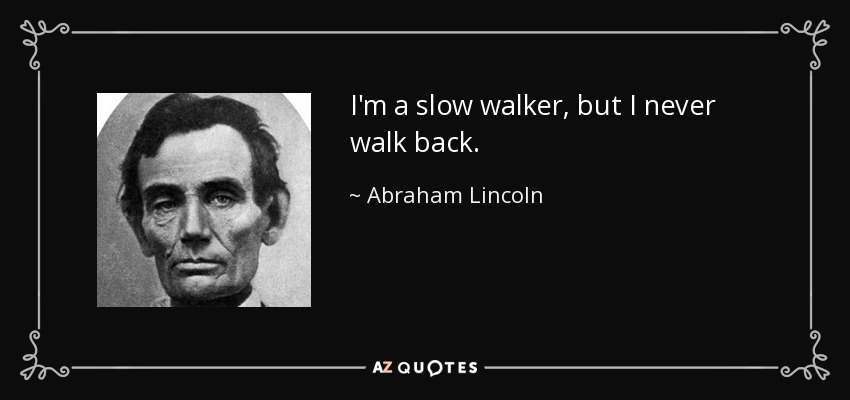Getting started on a new goal can be so overwhelming. Is that just me? I’m currently the chubbiest I’ve ever been and as I start taking some baby steps to fix it, I also feel like I’m just a mess and a little overwhelmed and like none of this could ever work and like I should probably go eat a box of cookies.
It reminded me that there was a time I felt similarly about my finances. The notion of ever getting ahead on my tiny salaries and with so much debt seemed impossible. I would read blogs by people where I am now and think “no way” or “their situation isn’t my situation.”
The thing is though, there are a lot of little steps that make up the giant gains over time. And a lot of the baby steps people can take apply to anyone who needs to get their finances together – even if all of them don’t.
So, I present for you, 21 baby steps to financial security, and not one of those steps is “create a budget.”
Fun Fact: There are some studies that say it takes 21 days to create a new habit, so if you do one of these for the next 21 days, you might do a good job of starting to rewire your brain.
- Check your credit score.
This will honestly take you like 30 seconds. My favorite place to check mine is CreditKarma. It’s super easy to use and they have a details section you can check out that breaks down how your credit score is calculated and things you can do to improve yours.
- Clean out your wallet.
When was the last time you went through your wallet? Do you have tons of loyalty cards you don’t even use in there? Do you have 8 half finished punch cards that make up a whole? You can condense all your loyalty cards into Stocard – a handy app that makes remembering your loyalty cards 100 times easier.
- Revamp your coupon system.
An obnoxious trick to coupons is that you have to remember to have them to use them. If you’re constantly saving the eight mile strip of paper from your CVS receipts or have hoarded 20 Bed, Bath & Beyond coupons, an easier way to remember to use them is to store them where they’re accessible when you’re in the store. If you live in a big city and walk most places, this could mean keeping them in your purse or backpack. If you drive most places, consider keeping them in your car. An easy way to keep them sorted is buying a cheap coupon file folder.
- Go through your closet.
Go through your closet and weed out anything you haven’t worn in more than a year. For anything you’re not sure about, put your clothes back in with the hangers facing the opposite direction – if they’re not turned back around by the end of the next year, plan to donate or toss them too. During this project, think about how much money you’ve wasted on items you don’t really wear and apply this new knowledge to your shopping habits (or pat yourself on the back that you’re super frugal and barely had anything to throw out). You can try to sell the unused items, toss them, or donate them and get a receipt for your taxes.
- Try a super easy side hustle.
Check out an awesome side hustle list and give an easy one a try. What I’ve found about a lot of the easy ones is that they probably won’t make you much money, butthey spark an interest in side hustles and a desire to find one that really does work for your. Some examples of easy side hustles are using eBay to declutter your home (step 4 might have helped you find some things to sell),mystery shopping or being a brand ambassador.
- Make a passwords sheet.
If you do a lot of banking online, make a passwords sheet for your bank accounts, investing accounts, and credit cards. If you don’t want to keep it online, that’s fine. It can be hand written sheet in your home, but if anything happens to you, your loved ones will have an easier time tracking down what they need to settle your accounts.
- Buy a personal finance book and start reading it bit by bit.
Not all personal finance books are incredibly boring (though some are). If you really hate non-fiction (I hear you), books like The Wealthy Barber or The Legend of the Monk and the Merchant might be more your speed. If you don’t mind some non-fiction, some other easy personal finance reads include I Will Teach You to Be Rich and The Broke and Beautiful Life. Or just Google personal finance books and find one that looks appealing to you.
- Brainstorm a list of 5 things you could do to improve your career skills.
One of the fastest way to improve your financial situation is to make more money. Are there any certifications or skills you could start working on that will make you more valuable to your employer? Maybe a free online course in computer skills or even a social etiquette class so you can really nail your business lunches? Even something as simple as a CPR/First Aid certification can give you an edge on some of the other employees in your company.
- Speaking of careers, make sure your resume, LinkedIn and/or website is up to date.
Keeping these things up to date helps make sure you’re prepared in case anything happens at work. It also doesn’t hurt to keep half an eye out for better opportunities. Even if you’re happy where you are, you may be able to leverage another job offer into a raise.
10. Sign up for a site like Mint or Personal Capital.
Maybe you’re super anti-budget. In that case, tracking your net worth can be almost as much of a motivator. To know where you’re going, though, you have to know where you are. Mint and Personal Capital are both completely free sites that let you enter your all your assets and all your liabilities and tracks them for you.
11. Consider a rewards credit card.
If you have issues with debt, this step isn’t for you. However, if you pay off your credit card every month, even if you don’t make a lot or live paycheck to paycheck, it’s worth looking into. Those cash back/travel rewards can make a difference for someone who pays their balance every month but doesn’t have a lot leftover. I’m currently working towards free flight with my American Express Delta Skymiles. There are also some great cards that don’t even have an annual fee that can get you some nice rewards too, like the barclaycard CashForward.
12. Pinpoint your weak spending spot and think of ways to hack it.
Now, I’m not saying the latte factor really makes a big difference in your income (though there are some low levels of income where it can), but if you really need that java each morning, how about looking into ways to make it cheaper and still get what you want. Would a Keurig make it worth skipping Starbucks? If it’s got to be Starbucks, how about planning ahead stocking up on discount gift cards from Raise and making sure you have a Starbucks Rewards card? Maybe you can’t skip Kohl’s after a rough day at work – discount gift cards. Does the local yoga studio make your stress of the day disappear like nothing else? Would they give you a discount if you worked the front desk one evening a week?
13. Call and negotiate your highest monthly bill.
Maybe the idea of trying to negotiate your utility bills is a little overwhelming, so let’s start with the one with the biggest possible payoff (usually cell phones or internet). Now, some utility bills might have a monopoly where you are (gas, electric, water), but some don’t. It can be worth spending 30 minutes on the phone to talk to a representative and let them know you’ve found some cheaper options you’re planning to go with but you wanted to see if there were any better deals than the one you currently have that the company give you.
14. Do a No Spend(ish) week.
A lot of weeks it’s impossible to do a total No Spend week. The mortgage is due. Someone has to go to the doctor. You need to reload your MTA card. However, it’s always possible to do the spirit of a No Spend(ish) week. First, survey your fridge and cupboards. Is there a fair amount of food you just never seem to eat there? Do you have enough toilet paper? Great. You’ve got the basics covered. Spend the week skipping on eating out, any kind of shopping and paying for any entertainment. If you’re like most of us, you’ll be surprised at how much you suddenly have leftover in your bank account.
15. Create a will.
While this probably seems incredibly complicated, if your assets are simple (like they for most folks) and you plan to leave everything to a spouse or kids, you can just do it online, print it and bring it to your local bank to get notarized. Sites like The Law Depot have set up wills similar to TurboTax – they ask you a bunch of clear questions and in 5-10 minutes, you have a printable document.
16. Price shop your phone plan.
Phones are definitely a pretty expensive recurring expense. Even if you have a discount on your monthly payments due to negotiating one in step thirteen, comparison shopping a little wouldn’t hurt. Check out what you monthly data usage actually is. If you find it’s not that high, looking into a plan from Republic Wireless or T-Mobile might save you a small fortune. Even if you are looking for unlimited data, another carrier could have cheaper options for you.
17. Set up a separate email for coupons, newsletters, etc. – anything online that asks for your email address.
Setting up a separate email address for those things helps keep your main account uncluttered, and it helps you avoid impulse shopping when you see a good deal. Also, by sending all your loyalty programs and newsletters to one spot, before you buy anything online, you can swap over to that email account, put the store in the search bar, and see if you have a recent email with a discount code.
18. See if you qualify for an HSA.
An HSA is a Healthcare Savings Plan. These are amazing because you can put in before tax money, the money grows tax free, and as long as you withdraw it for a medical expense, you don’t get taxed on it then either. The real magic too is that money can be withdrawn for anymedical expense over the amount of time you’ve had the account – like in 2039 you could still submit a medical bill from when you opened the account in 2019. So ideally, if maxing out a 401(k) or IRA seems laughable to you, maybe $291 a month is within the realm of possibility? Then just set up a folder and save your receipts from any medical bills. If things are going well financially, let your investment ride, if you need the cash, submit a medical bill and get your money.
To qualify for an HSA, check first with your employer to see if they already have one. You want to make sure it has the option to invest (some only function like savings accounts). If you have a health plan with an individual deductible of $1,350 or more, you can open an HSA on your own as well. Mine is through Old National, and it can function as both a savings account and an investment account.
19. Get to know your HR department.
If you haven’t check in with your HR department since the day you were hired, maybe it’s time to pop in and reintroduce yourself. These guys can usually help you figure out your retirement plan. They can tell you if the company offers an HSA or FSA (Flexible Savings Plan – like an HSA but you have to use up all the money each year). They can also tell you if your company has any cool perks like reimbursements for going to the gym a certain number of times, fitness incentives, even consumer discount programs.
20. Find your local library and get a library card.
Guys, you can get an awful lot for free at the library – like, whatever book you picked to read for step number seven. They also have free movies and music you can rent. Additionally, the online perks are even crazier these days. If you have a Kindle (or any type of web-connected reader) you can rent books that way too. They often have free workshops and activities. It’s definitely worth swinging by and signing up for a card. If you’ve already got a library card in the darkest back corners of your wallet, time to dust it off and see what’s happening there.
21. Start a change jar.
Talk about a baby step, but it is a fun lesson in how little things add up. In my house, we always had a change jar on the counter in the kitchen. When I was little, my mom would tell me I could have ice cream from the ice cream truck in the summer if I could count out enough money quick enough from the jar. Dump the change from your pockets or purses into your jar and when it’s full, take it to the nearest Coinstar and reap the rewards of “magic” money.







Well, hell, I feel overwhelmed on the daily. I think that’s just life. I think my best finance tips are to keep your ongoing costs as low as possible – get rid of subscriptions, basically. And re-examine the rest of the ongoing costs regularly. Do you need all of your insurance? Are you paying more than you should? Etc. I think it’s helpful to go back to basics regularly also, and track your spending. I recently found that I’m spending DOUBLE the budget on food. Back to meal planning for me!